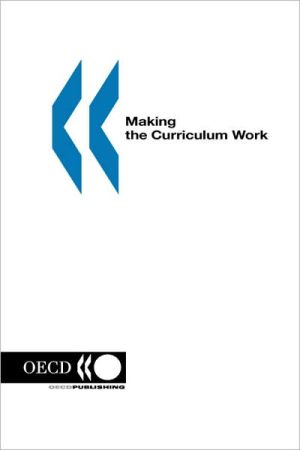

 |

|

The average rating for Making The Curriculum Work based on 2 reviews is 3 stars.
Review # 1 was written on 2016-09-17 00:00:00 Suzanne Jubin Suzanne JubinLynn Erickson captured my educator's heart with this book, inspiring me to change what I was doing, thinking, and how I was approaching education. I was not a success at school as a student and dropped out before I finished. After returning to education and qualifying as a teacher, I began doing everything I hated when was a student, I began to teach the way I was taught. I began to hate teaching and hate school again. This is one of the books that saved me. Every 21st-century teacher needs to read this book. |
Review # 2 was written on 2019-12-29 00:00:00 Michael Solof Michael SolofA powerful part of the trilogy of books from Lynn Erickson, who lays out the foundations and strategies of Concept Based Curriculum in these books. Overall it is lucid and compelling. This is clearly the transitional book between 'Concept Based Curriculum and Instruction' and 'Transitioning to Concept Based Curriculum': you can see the introduction of thinking from Lois Lanning about the epistemology of skill based learning, which is absent from the first book, intrudes awkwardly here, and then is fully developed in the 'Transitioning' book. This filling out is an essential part of the final thinking. Some of the inherent tensions and paradoxes of the first book are worked out here, or surfaced. A major one is the nature of learning in what Erickson here differentiates into 'Social Sciences' and 'History'. What Erickson has not yet unpacked is the fact that in most learning that involves complex interdependent systems, there is a methodology which is learned and basic kinds of interaction, but after that 'expertise' depends on a high volume of specific case study, and expertise is not the ability to define concrete rules, but the ability to detect patterns and significance in complex interactions and interrelationships. This is at the heart of the epistemology of the social sciences, but Erickson is still looking for generalisations like 'Revolutions lead to improved living conditions for the oppressed' or suchlike, and niether History nor Social Science offer up generalisable truths of that order. What they offer is more of the character of 'Historians determine the significance of Revolutions by examining both short and long term implications for different groups allowing us to understand Historical Change'. Erickson is still brilliant in the background quietly undermining the 'Standards Based' approach to learning; although in many conversations at UWCSEA I have seen the tension between Concept Based and Standards Based, and particularly in conversation with Nick Alchin, but until now no-one could really name the reason. Erickson in an understated way, digs away at the foundational assumptions and intellectual short cuts of Standards Based, except when applied to specific instruction or assessment. I'll be writing up another post specifically on this. The sections on skills and strategies for concept based teachers is again a little thin compared to what one might desire, but enough directions are pointed to that would allow for the development of a richer tool kit. Overall this can only be read as the middle part of a trilogy, but the trilogy is a very significant contribution to educational studies and compass for future developments. |
CAN'T FIND WHAT YOU'RE LOOKING FOR? CLICK HERE!!!